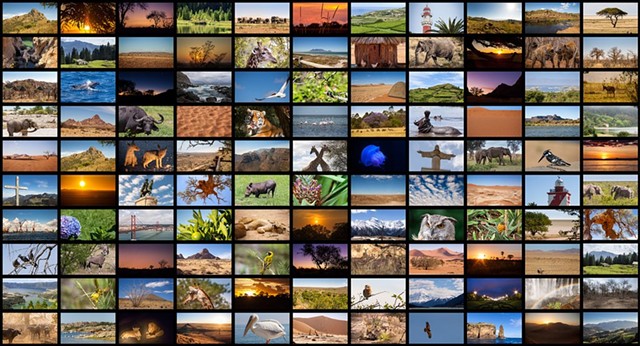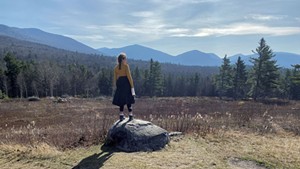
- © Ondej Prosický | Dreamstime.com
One of the ways my family and I have occupied ourselves during the pandemic is by taking advantage of lots of free trials for various streaming services and subscribing to Netflix.
In my ideal life, we'd use this period of enforced isolation to be out in the woods more than ever. But in our household — made up of two exhausted teachers and one almost-13-year-old who can, on a moment's notice, come up with several other things he'd rather do than go anywhere with his parents — the small screen seems to be one of the easiest ways for us to connect these days. As the weather gets colder and the evenings longer, snuggling on the couch with some popcorn and a show has a powerful appeal.
We take turns picking what we watch, so between various superhero movies and episodes of "Kim's Convenience," the other night we found ourselves watching My Octopus Teacher.
This movie, in which a filmmaker chronicles his emerging friendship with an octopus, was a unanimous hit in our family — and my son is now inspired to snorkel — but it got me thinking about nature documentaries as a genre. The thing that stood out to me about this one was that, to borrow a math homework analogy, the filmmaker showed a lot of his work.
Browsing the internet for the best nature documentaries, I learned that, for the 2019 series "Our Planet," narrated by famed British broadcaster and natural historian David Attenborough, producers spent 3,500 days in the field. That's not a typo; that's 10 days for each minute you watch. For the 2001 movie Winged Migration, the filmmakers apparently imprinted baby birds on staff members, trained the birds to fly with the flight crews, and shot 590 miles of film.
I started to wonder about what the results of such astounding efforts teach us. What if they give us an unrealistic idea of what nature is supposed to be like, making us think that on every outing in nature we should expect to interact with a baby bird as if we were its parent or to commune with baby gorillas who will untie our shoelaces. That every stream should have a 150-foot waterfall and every rise a breathtaking vista.
That might make your average ramble through the woods feel a little disappointing or make you feel like you weren't seeing what you were supposed to be seeing. It could make nature feel out of reach.
What is there to see if you don't cross paths with a wild animal or happen to live in a national park? So much! As you gain familiarity with your own spots, the small wonders reveal themselves to you slowly, over time. Think of nature documentaries as the celebrities of the natural world — and then think of your nearby natural areas as the complicated, three-dimensional, real people in your life.
I was curious about which nature documentaries might have been formative viewing experiences for the best naturalists I know. So, in a highly unscientific survey, I asked them about their favorite documentaries on Facebook.
There was a lot of David Attenborough on the list and lots of PBS shows. And, to be sure, these programs are exciting and awe-inspiring. I just recommend accompanying them with a little dose of media literacy. For example, ask your family, "Did you know the filmmakers had to spend 10 days in the field for each minute you are watching? At first I was surprised to learn that, but then I realized that movies only ever show part of the story."
I was surprised by the breadth of suggestions people posted. I got two cat recommendations: an entertaining BBC series called "The Secret Life of Cats," and Kedi, a 2017 documentary about stray cats in Turkey, plus a dog suggestion: Pick of the Litter, a 2018 movie that follows a litter of puppies through guide-dog training. Upon reflection, though, that made sense: pets are the easiest animals to observe closely and over time, and a great place to cultivate the habits of observation. Pigeon Kings, a 2020 film about a group of men in South Central Los Angeles who rear and train pigeons, also made the list. I appreciated the way these suggestions expanded ideas about what counts as nature.
Some people mentioned my old favorites: Winged Migration and Microcosmos, a 1996 film that combines a dramatic score with a bug's-eye view of the world. I was glad to see them there. The thunderstorm scene in Microcosmos was the first time I felt like I had a visceral understanding of what it might actually be like to be an insect. And seeing birds flying, imprinted or no, from a plane's-eye view in Winged Migration was the first time I understood how hard it is to fly. And, I'm happy to report, My Octopus Teacher was mentioned several times.
Many people noted that the show they recommended moved them to tears. But really, the list of programs they recommended was pretty short, and many of them were quite recent. My working theory is, naturalists don't become naturalists by watching movies. They do it by going outside.
So, the guilt my cousin Lauren admitted to in her post about how, back in March, she made a point to watch documentaries with her kids, but not so much anymore? Unnecessary. Pop some popcorn, watch the things that work for your family, and enjoy some downtime from our long, hard year.











Comments
Showing 1-1 of 1
Comments are closed.
From 2014-2020, Seven Days allowed readers to comment on all stories posted on our website. While we've appreciated the suggestions and insights, right now Seven Days is prioritizing our core mission — producing high-quality, responsible local journalism — over moderating online debates between readers.
To criticize, correct or praise our reporting, please send us a letter to the editor or send us a tip. We’ll check it out and report the results.
Online comments may return when we have better tech tools for managing them. Thanks for reading.